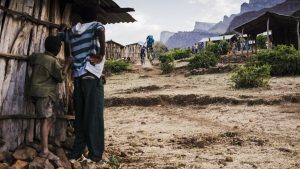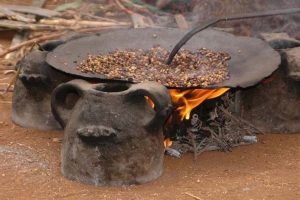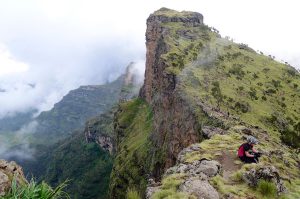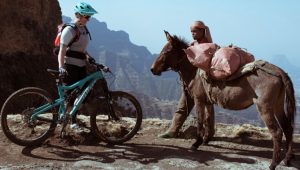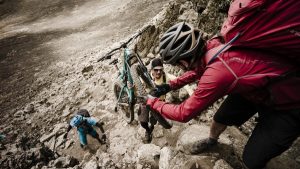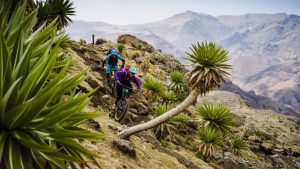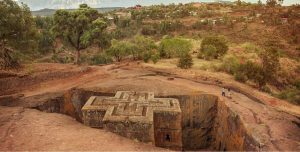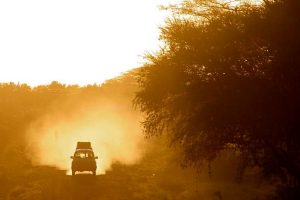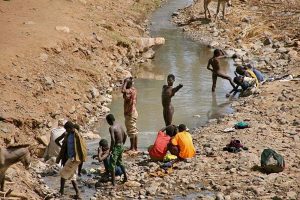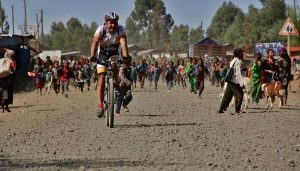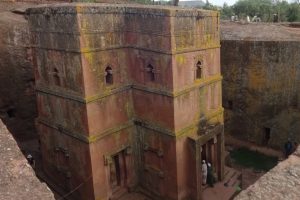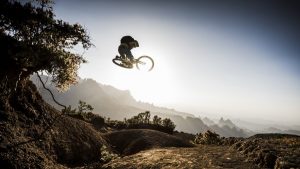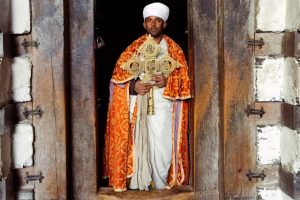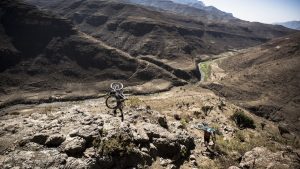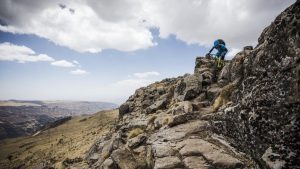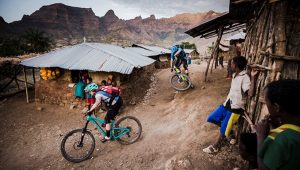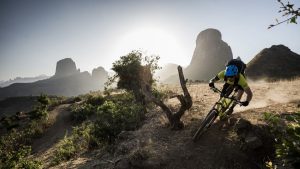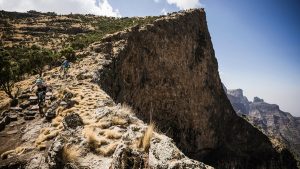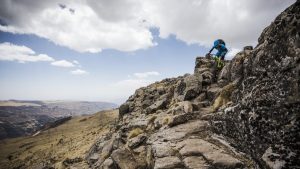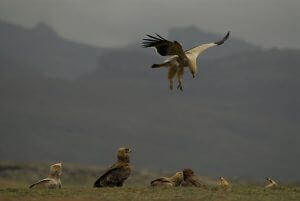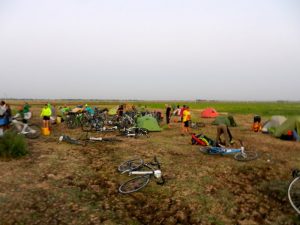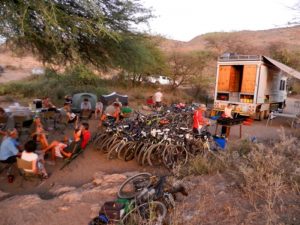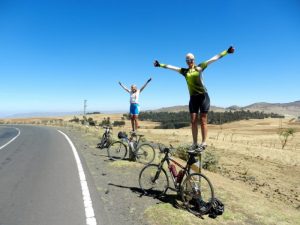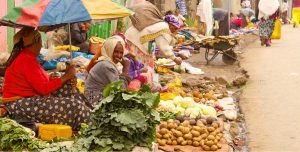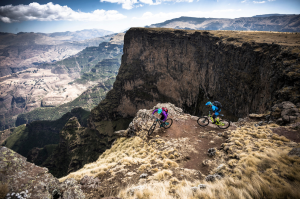Essential Information
About a stage: We will wake up early and after breakfast and the personal preparation the organization will start the daily stage. During the development of the stage the organization will set up points of food supply and water rehydration. The departure is scheduled between approximately 7:00 and 8:00 am, depending on the mileage on the program. It is recommended to take the ride everyday with calm and try to enjoy the majestic scenery surrounding us. The excursions are not a competition but will require good preparation. At about 15:00-17:00, depending on the pace, the stage will end: it is time to rest and regenerate. After dinner, the Organization holds a briefing on the next stage. End the day chatting about the day’s ride.
Very Important! The places where the entire route will be developed are wild, there are no cities but small communities. It is not guaranteed you will have the opportunity to wash (hot water) on some stages. For this reason it is recommended that each participant, in addition to the joy of cycling, brings with it a great sense of adventure, adaptability and collaboration. The grandeur of the landscape will reward the labors as the days will pass. The organization will provide all their experience, so you can enjoy the maximum comfort throughout the expedition.
Support: Depending on the size of the group there will be at least one support vehicle. The support vehicle will carry all of your luggage and extra gear as well as snacks and water. It can also carry you and your bike if you feel like taking a break or in case of emergency.
Prophilaxis: No particular vaccination is required, although it is better to be covered with anti-tetanus.
Alimentation: Anyone vegetarian, vegan or allergic to any kind of food in general, please notify US.
Medical Assistance: Throughout the trip we will have a well-stocked first-aid bag. Despite this, we suggest each of you not leave without their stock of personal medicine. If anyone is allergic to a particular medicine or food, please to notify US.
Companions: The route is one of the most beautiful and spectacular you can see in Ethiopia. Conscious of this we offer the opportunity to participate not only as a cyclist, but also as an alternative traveler. People who are accompanying ther riders will be provided easy trekking along the same trail of the cyclists or in the villages they passed through. In this way we are sure to satisfy all those who want to try this adventure cycling, but they have also fill all the expectations of those who are not mountain biker but still want to be part of an expedition
Wheater: Usually on the plateau there are two main seasons: the dry season from October to May and the rainy season from June to September. The temperatures could be higher in the first stages and in Addis Abeba where it can reach over 24ºc. On the plateau the temperature will be colder and in some stages it may be around 5ºc during the night. During the day on the bike it is recommended to always keep very well hydrated. It is necessary to use moisturizer for the face and protection against UVA.
Photo and tips: Is highly recommended to ask before taking any photos. In some villages people ask for a tip for any photo and the price must be negotiated with the person. In any case, we suggest to not give money where it is not asked and not give candies or other objects to the children we will meet on the road and in the villages. It is usually permitted to take photos during the procession in the churches but we think that it is better to maintain a certain distance out of respect.
Mechanical Assistance: Everyone is responsible for their own repair of flat tires, cleaning of the chain or other mechanical problems. So it’s essential that everyone brings with him a kit for repairs. Each participant can bring spare parts from home, that the organization will carry on the vehicle and give to the rider at the end of the stages. In any case we will help anytime it will be possible. we will not be held liable for bike damage as a result of improper packing, maintenance or transportation, accidents, or whatever other reason. While local parts are available, they may not match those of your specific bike or equipment. In the event that your bike is unrideable, we will make every reasonable effort to find a suitable replacement bicycle. The rider will take responsibility for incurred rental costs and you will not be compensated for possible lost riding time.
How to pack the bike: Your bike must be packed in special soft bags or boxes (please avoid plastic and bulky bags). Remove the wheels. Deflate the tires. Disassemble the rear derailleur and wrap it in something soft. Remove the pedals.
Which Kind of Mountain Bike: This is of course a very subjective and difficult topic. First of all, you don’t need the latest mountain bike. Full suspension bikes are really useful, especially in the downhill sections. Front suspension are lighter but require a higher level of handling and concentration. Suggested tires: 2.0/2.2. The brakes: it’s not important which kind of system you use, they must be fully operational. If you do not want to carry a backpack, we recommend a little rear carrier. In any case the bike needs to be in perfect condition and recently checked by your mechanic.
Basic Rules
In order to achieve the greatest effectiveness we believe it convenient to adopt some basic rules.
- a) Equipment needed We will have a limited space for the transport of the equipment of the expedition, so each person must carry strictly what you list below:
- An identifiable travel bags
- Sleeping bag (at least 0 degrees C in condition comfort)
- Clothing cycle (short and long)
- Leggins and sleeves
- Light and heavy gloves
- Light and wool cap, sunglasses
- Anti Wind Jacket
- Socks and shoes suitable for riding
- Rubber sandals for the shower
- Underwear and towel
- A fleece or wool sweater
- Small bike bag or Backpack
- Toiletry bag and a roll of paper
- Moisturizers and sun protection factor 12
- Headlamp
- Helmet (*mandatory*)
- Two water bottle
- Kit for puncture repair + 2 spare tubes + pump
- Spare tire and spare brake pad
- Chain tool and Chain Oil
- Allen keys/Multitools
- A small pharmacy set
- b) Lunch bag Before departure of each stages, the organization will deliver to each participant a bag of food supplies that they bring with them in a backpack.
- c) Camps During the tour will be organized working groups that, in turn, will participate on some stages in the construction of the camp. Note: this does not mean that you will cook but that you will participate in the preparation of infrastructure on which we will spend the night or we will have dinner. All this is very important to create the best group you would expect on a trip like this and friendships that often persist for years.
- d) Environment Each participant is responsible for helping protect the local environment. Hold on to any garbage until you meet up with the support vehicle or find a wastebasket / recycling bin. Stay on the main trails as much as possible.
- e) Safety Without trying to limit your riding enjoyment, we ask all participants to ride responsibly in order to reduce the likelihood of injuries to themselves and others. Ride conservatively on technical sections and reduce speed when appropriate. Be aware of pedestrians and other vehicles. Helmets are mandatory at all times. Alert the staff if you notice any problems with your bicycle.
- f) Right of the organization The organization reserves the right to change the route for the safety and security of participants. We also reserve the right to terminate the tour of any participant who refuses to ride responsibly or repeatedly puts other at risk. No compensation will be provided for tours cancelled as a result of non-compliance.
- g) Waiver of Liability All participants will be asked to sign a waiver before the start of the tour. If you have any questions, please contact us in advance.


